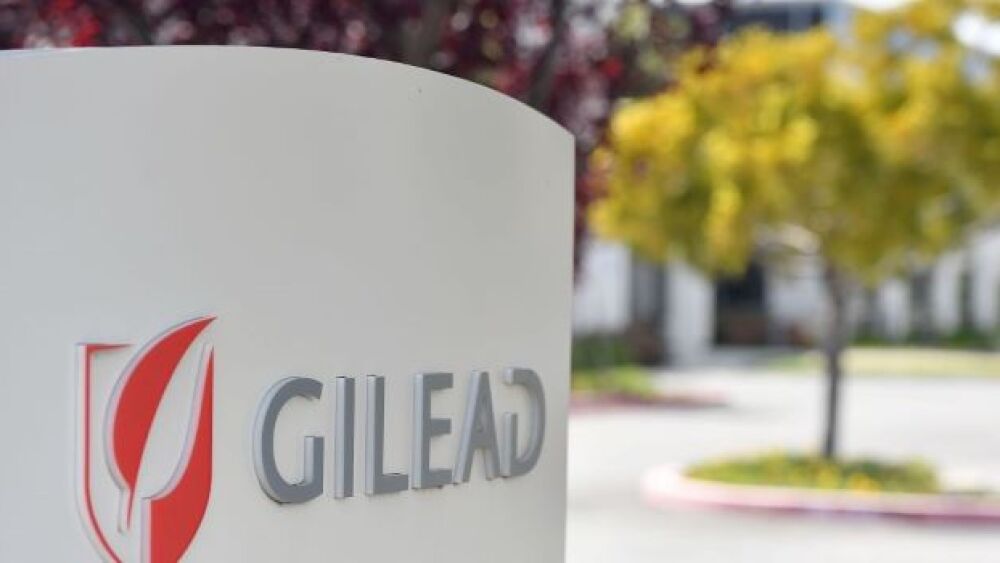Gilead Sciences shared what seemed to be good news regarding Trodelvy in HR+/HER2- breast cancer at the 2022 American Society of Clinical Oncology’s annual meeting.
JLatest trial of Gilead’s Trodelvy shows positive result. (Josh Edelson/AFP via Getty)
Gilead Sciences shared what seemed to be good news regarding Trodelvy in HR+/HER2- breast cancer at the 2022 American Society of Clinical Oncology’s annual meeting, but a modest survival advantage left some wondering about the clinical significance.
In its ASCO presentation, Gilead said that the Phase III TROPiCS-02 trial of Trodelvy (sacituzumab govitecan-hziy) in heavily pre-treated HR+/HER2- metastatic breast cancer patients met its primary endpoint of progression-free survival, with a 34% reduction in the risk of disease progression or death. The patients in this study already received prior endocrine therapy, CDK4/6 inhibitors and two to four lines of chemotherapy.
At the one-year mark, 21% of the 543 patients given Trodelvy experienced PFS compared to those given the physicians’ choice of therapy (TPC). The chemotherapy of choice involved eribulin, capecitabine, gemcitabine or vinorelbine for this study. PFS improvements were consistent across key patient subgroups, including those with visceral metastasis, the elderly and those previously given at least three chemotherapy regimens for metastatic disease.
Trodelvy’s safety profile was consistent with earlier studies, with no new safety issues identified in the TROPiCS-02 trial.
“In TROPiCS-02, we enrolled heavily pre-treated patients with metastatic breast cancer who had disease progression following multiple lines of chemotherapy. To observe a clinically meaningful reduction in the risk of disease progression or death in these patients with limited treatment options is remarkable. Sacituzumab govitecan-hziy will be an important potential future treatment option for these patients,” Dr. Hope Rugo, director of breast oncology and clinical trials education at the University of California, San Francisco Comprehensive Cancer Center, commented.
However, another key stat was less impressive, as the median PFS advantage shown for Trodelvy was just 1.5 months over chemotherapy at 5.5 months vs. four.
“Some will argue is that really a clinically meaningful difference?” Dr. Julie Gralow, ASCO chief medical officer told Reuters. “The real point here is we have proof of principle this drug works...I’m sure it will be used.”
Trodelvy, a first-in-class Trop-2 directed antibody-drug conjugate designed with a proprietary hydrolyzable linker attached to SN-38, is approved in over 35 countries for adults with unresectable locally advanced or metastatic triple-negative breast cancer who received at least two prior systemic therapies, at least one for metastatic disease. It is also approved in the U.S. under the U.S. Food and Drug Administration’s accelerated approval for locally advanced or metastatic urothelial cancer.
HR+/HER2- metastatic breast cancer is the most common type of breast cancer, accounting for around 70% of all new cases. Almost one in three early-stage breast cancer cases eventually become metastatic. The five-year relative survival rate is 30%. The primary treatment option is single-agent chemotherapy, and while it is common for a patient to undergo multiple chemo regimens, the prognosis is still poor.
“With Trodelvy, our bold ambition is that it will help transform care for people living with cancer, including in pre-treated HR+/HER2- metastatic breast cancer, where more options are needed. We look forward to continuing discussions with regulatory agencies to further understand how Trodelvy can impact this patient population with a high unmet need,” Bill Grossman, M.D., Ph.D., senior vice president and therapeutic area head at Gilead, noted.





